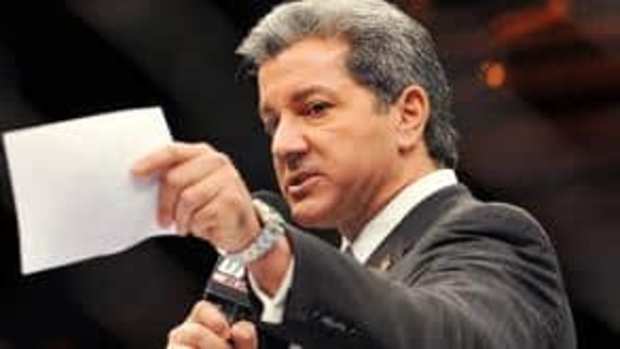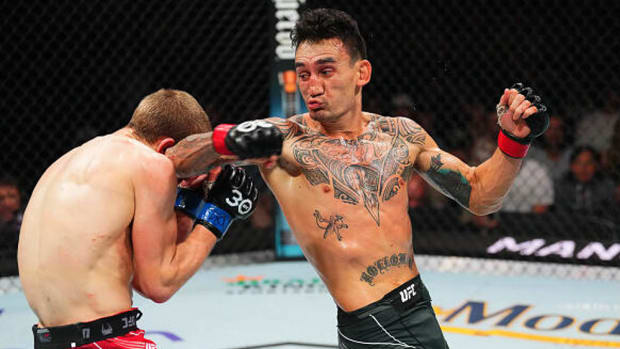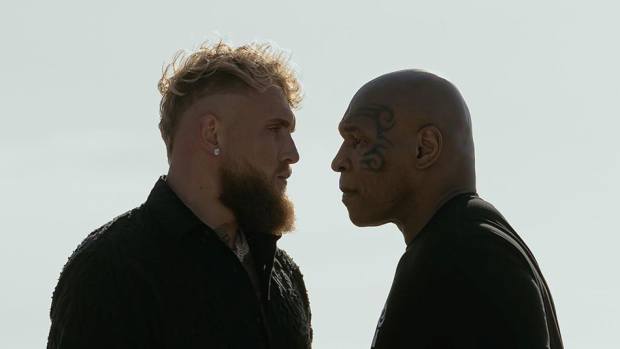Jeremy Horn: What I know after 20 years of fighting
Jeremy Horn has been fighting for nearly 20 years, vs. Randy Couture, Forrest Griffin, Chuck Liddell, Antonio Rodrigo Nogueira, Anderson Silva, Chael Sonnen, Dan Severn, and over 100 others. Horn put Liddell to sleep, beat Sonnen three times, and knocked out Griffin for the first time. And in a sport profoundly concerned with CTE, At 40 is is completely healthy, still fighting, and runs Jeremy Horn’s Elite Performance MMA in Sandy, Utah.
An an awesome interview with James Woods for the Irish site MMAMicks, Horn talks about, well, everything!
James Woods: What’s the reason you continue to fight?
Jeremy Horn: I just enjoy the sport, I enjoy fighting and I always have. And I’ll keep doing until it’s not fun anymore!
JW: How have you managed to have such a long and successful career without sustaining any serious injuries?
JH: I think it’s mostly because of my mentality towards training and you know, fighting. I’ve always been of the mind set to train smart and not super hard. You know, not just be a brawling bone head, and that’s just always been my mentality.
It’s kind of funny, all these guys that are now advocating to not go super hard, don’t get concussions when your sparring, don’t do this or that; I’ve been saying that for 15 years!
I’ve always believed that you should focus on technique, doing things right, doing them smoothly and that it’s not always about biting down on your mouthpiece and throwing as hard as you can against everybody and everything.
You need to go hard every now and again, because… You have to be capable of doing that. You need to know that that is something you can do. But if you do it all the time just to prove that you can or to make yourself feel good is just silly.
JW: In 1999 you fought 21 times winning 20. Can you describe your training regiment during that time?
JH: Ya I fought just about every weekend that year. So it was pretty much train Monday through Thursday, then travel Friday and fight Saturday. Then come home on Sunday and then train again on Monday.
Every now and again it would be leave on Thursday and fight on Friday. Or sometimes I would even fight on Friday and Saturday.
So that was basically it; train Monday through Thursday, go to the fight, fight, and then come back and train again.
JW: Conor McGregor is bringing a lot of attention to not only the UFC but to the sport as a whole. Do you think his personality and notoriety is a positive representation of martial arts? And do you think its good for MMA?
JH: Hmm, as far as if he’s a good representation of martial arts; that’s borderline. He really goes back and forth.
I’ve always said, being loudly aggressive and confident is good for the sport; you know, the kind of Chael Sonnen approach where you strut around and say you’re the greatest in the world and nobody’s going to touch me. And that’s fine, but there’s a difference between saying I’m the best and saying you suck. That to me, is where the line needs to be drawn.
So Conor McGregor was really walking that line. When they ask him what he thinks of his next opponent it’s one thing for him to say he’s going to obliterate him, or there isn’t anything he can do to me. But then he started talking about Aldo saying “Well he’s a bum, he doesn’t deserve this…” to me there’s a difference there.
You can be respectable and still think you’re the greatest. But when you start being disrespectable to other people is when I think its bad for martial arts in general.But as far as the UFC goes, who cares. He’s bringing more attention to the sport. Love him or hate him, everyone wants to see him fight. So he’s good for the sport but the sport is not the same as martial arts.
Man, Conor is an amazing fighter though. He’s certainly very skilled but I personally think that his biggest weapon is his confidence. When he fights, he’s not just talking shit; he truly believes that he’s the best fighter on the planet. And when he goes out there, he fights like that. I always tell my guys, when you watch him fight, there isn’t anything that he does that you couldn’t do to your 12-year-old kid brother. Like the techniques that he’s using are good but there’s thousands of people out there that can do them exactly like he does them. The difference is, he’s doing it at the highest level to the best competitors out there and he’s still doing it and still making it look easy. And that comes from his supreme confidence in himself.
JW: What’s next for the sport of Mixed Martial Arts?
JH: I think one of the biggest things that it needs, is there needs to be another organization out there, a legitimate organization that can challenge the UFC for fighters and for money. There is no question that the UFC controls the sport and that’s good and bad because the UFC is doing great things for the sport.
But it almost has to (much) control. I don’t wanna say that they're holding fighters back because that certainly isn’t true but there’s a lot of fighters who are stuck where they’re at because the UFC is the only option. So as soon as there becomes another major player to legitimately challenge them and give fighters some other options they’re kind of stuck.
With Bellator you get more freedom of sponsors which for some people can be really good. But you know, they put together some freak shows and some not so legitimate tournaments and that kind of thing. And a lot of people aren’t interested in that and want to see something a bit better.
What really seems strange to me is that Bellator certainly has, with the backing of Viacom, they have the money to challenge the UFC for fighters and to really make themselves a major player. But they don’t seem to want to. I can’t really tell if they’re just playing it smart and just growing their brand slowly or if they’re just scared to challenge the UFC and waste a bunch of money.




